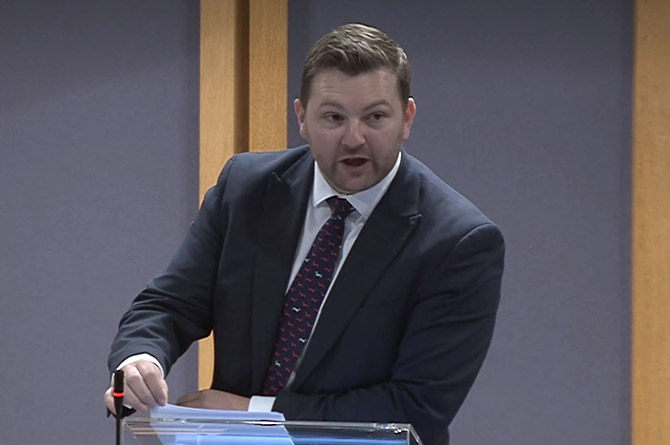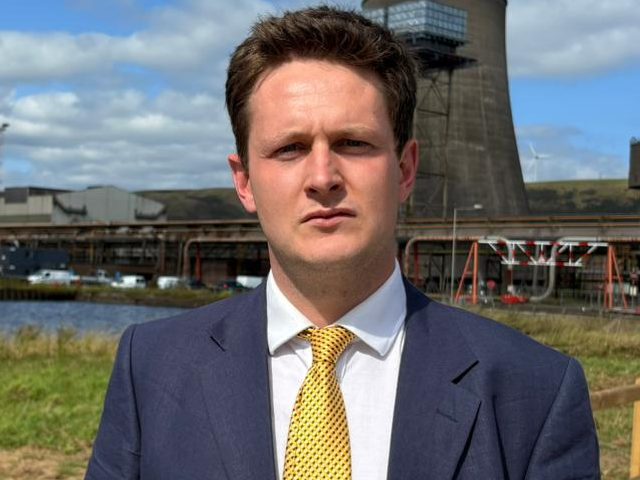Politics
Public feel ‘disengaged’ from Parliament

RESEARCH by The Hansard Society suggests that the public is increasingly disenchanted with the UK’s system of government.
Founded in 1944, the Hansard Society is dedicated to expounding the principles and practice of parliamentary democracy and its challenges. It is widely recognised as the Westminster Parliament’s ‘critical friend’.
Contrary to a belief peddled by some commentators, the research, published in the 16th Audit of Public Engagement, finds that the public care about political issues. However, the research also shows that many are unhappy and frustrated about the way in which Parliament works. As a result, a significant proportion of voters are ready to consider a radical change to our system of government.
Over one-half of the Audit’s respondents think that what the country needs is a ‘strong’ leader, prepared to break the rules. Around 40% think that the government could better deal with the country’s problems if it was not tied to parliamentary votes.
72% say the system of governing needs ‘quite a lot’ or ‘a great deal’ of improvement. That figure is a significant increase on the previous year, itself at a worrying level of 67%. The number of people who say the system needs ‘a great deal’ of improvement has risen eight points in a year, to 37%.
Asked whether the problem is the system or the people, the largest group (38%) say ‘both’.
When asked which institutions are most likely to act in the public interest, UK citizens have more confidence in the military and judges than in politicians. Politicians will be pleased to see that they still rank ahead of political parties, big business and newspapers as more likely to act in the public interest.
Strikingly, only 25% of the public have confidence in MPs’ handling of Brexit. People were asked whether key groups’ and institutions’ handling of Brexit had given them more or less confidence in these groups and institutions to act in the public’s best interest. 60% said they had less confidence in political parties, 60% in the government and 57% in MPs as a result of their handling of Brexit. Confidence had been driven down the least in civil servants (41%) and judges (35%) as a result of their handling of Brexit.
75% say the main political parties are so divided within themselves that they cannot serve the best interests of the country. 50% say the main parties and politicians don’t care about people like them.
Well over half the public are downbeat about the state of Britain – 56% think Britain is in decline, 63% think Britain’s system of government is rigged to advantage the rich and powerful, and 66% think most big issues facing the country today don’t have clear solutions.
The public is evenly split between those who prefer politicians who make compromises with people they disagree with (48%) and those who prefer politicians who stick to their positions (45%). 66% think politicians should be able to say what’s on their mind regardless of what anyone else thinks about their views.
Despite the legislative chaos following the last Brexit referendum, 55% still think that big questions should be put to the public in referendums more often than today.
The Audit suggests a dissolution of the ties between the governed and their representatives. Although core indicators of political engagement remain stable, beneath the surface the strongest feelings of powerlessness and disengagement are intensifying. The number who ‘strongly disagree’ that political involvement can change the way the UK is run (18%) has hit a 15-year high. 47% feel they have no influence at all over national decision-making – a new high for the Audit series.
At the national and local levels, the numbers of those feeling they have no influence at all have jumped by seven and nine points in a year, respectively. This intensification of the strongest feelings of powerlessness has occurred even as the overall measures of people’s sense of influence, which include those who feel less strongly, have declined only slightly since last year.
News
Kurtz criticises Tufnell over GP pressures at Argyle Medical Centre

Local MS says Welsh Government decisions are root cause of crisis
CONSERVATIVE Senedd Member Sam Kurtz has criticised Labour MP Henry Tufnell after the MP suggested GP practice management should be held accountable for patient dissatisfaction at Pembroke Dock’s Argyle Medical Centre.
Patients registered at the surgery have for years raised concerns about access to appointments, particularly difficulties securing same-day consultations and long waits to get through on the phone.

Speaking to BBC Wales, Mr Tufnell said he had discussed the situation with the Health Board’s Chief Executive and claimed the senior official “feels powerless” to intervene.
He said: “I’ve spoken to the Chief Executive of the Health Board, and he feels powerless to do anything about it. We need to come together and hold the management of these surgeries to account; there must be transparency about what they’re doing, and, fundamentally, we need reform in the system.”

Mr Kurtz responded angrily, arguing that responsibility for reforming NHS Wales rests with the Welsh Government, not GP surgeries or frontline staff.
He said: “I don’t think it’s very helpful to point the finger at the surgery and suggest the fault lies with them when staff are working incredibly hard.
“If he wants to point the finger, it should be at his Labour colleagues in Cardiff Bay, who have continuously piled pressure onto GP practices by imposing contracts that are extremely difficult to deliver. That is why surgeries like Argyle are under such strain.”
Mr Kurtz later told The Pembrokeshire Herald that the problems faced by GP practices across Pembrokeshire were the result of long-term policy failures rather than poor local management.
“As someone born and raised in Pembrokeshire, I have seen first-hand the damage caused by the Welsh Labour Government’s mismanagement of our local NHS, despite the dedication and professionalism of frontline staff who continue to do their very best in increasingly challenging conditions,” he said.
“Anyone seeking to place the blame on NHS staff should back off. The fault does not lie with them. Real improvement will only come through properly supporting GP practices, listening to their concerns and working with them rather than against them.”
Argyle Medical Group is the second-largest GP practice in Wales, serving around 25,000 registered patients with nine GPs — an average of approximately 2,800 patients per doctor. In 2021, the practice had the equivalent of 10.75 full-time GPs and was actively seeking to recruit more.
However, ongoing recruitment difficulties forced Argyle to withdraw from its contract at St Clement’s Surgery in Neyland and reduce hours at St Oswald’s Surgery in Pembroke. Following the Neyland closure, patients were transferred to the Neyland and Johnston Medical Practice, which later handed back its GP contract after retirements and further recruitment problems. Those patients are now treated by salaried and locum GPs employed by the Health Board.
Similar pressures are being felt across Pembrokeshire, from Tenby in the south-east to St Davids in the north-west. While Wales does not face “GP deserts” on the same scale as the well-documented shortage of NHS dentists, reduced access to general practice has contributed to more patients attending hospital for conditions once routinely dealt with by GPs. This has placed additional strain on hospital services and staff.
In 2018, the Welsh Government pledged to recruit 1,000 additional GPs into NHS Wales. While overall GP headcount has risen, the number of full-time GPs has continued to fall. Many newer recruits work part-time, as locums, or on limited contracts, meaning fewer doctors are available in practice on a day-to-day basis.
Newly qualified GPs have also tended to favour larger urban centres, particularly along the M4 corridor and in north-east Wales, where professional support and career opportunities are greater. Critics argue that Welsh Government recruitment and retention strategies have failed to address persistent shortages in rural and coastal communities.
There are also ongoing shortfalls in independent prescribing pharmacists and community nursing staff, limiting efforts to relieve pressure on GP surgeries.
Mr Kurtz said: “The foundation of NHS care — with GPs as the first point of contact — has buckled. Blaming GP staff is a distraction. The issues are structural, long-term and political, and ultimately the buck stops in Cardiff Bay.”
Health
NHS Wales spends more than £15.5m on agency radiographers as pressures grow

NHS WALES has spent more than £15.5 million on agency radiography staff over the past five years, as mounting pressure on diagnostic imaging services raises concerns about long-term workforce sustainability.
Figures obtained by the Welsh Liberal Democrats through Freedom of Information requests show that spending on temporary radiographers almost doubled between 2020/21 and 2023/24, despite relatively low headline vacancy rates across Welsh health boards.
Radiographers carry out X-rays, CT, MRI and ultrasound scans, which are essential to emergency care, cancer diagnosis, trauma treatment and elective surgery. Delays or shortages in imaging services can have a knock-on effect across patient pathways, slowing diagnosis and treatment.
The data also highlights an ageing workforce. More than a quarter of radiographers in Wales are aged over 50, with more than one in ten aged 55 or above. In some health boards, a significantly higher proportion of staff are approaching retirement age, raising concerns that experienced radiographers could leave faster than they can be replaced.
Betsi Cadwaladr University Health Board recorded the highest agency spend, at more than £8.1m over the period covered by the FOI requests. Other health boards also reported growing reliance on temporary staff to maintain services, particularly where specialist skills are required.
While official vacancy figures remain comparatively low, professional bodies have previously warned that vacancy data does not always reflect pressure on services, as posts can be held open or covered through overtime and agency staff rather than filled permanently.
Diagnostic imaging demand has increased steadily in recent years, driven by an ageing population, advances in medical imaging technology, and rising referrals linked to cancer and long-term conditions.
Commenting on the findings, Welsh Liberal Democrat Leader Jane Dodds MS said:
“Radiographers are absolutely vital to the NHS. From diagnosing cancer to treating people in A&E, the vast majority of patient journeys depend on timely access to scans.
“These figures show a system increasingly relying on expensive agency staff while failing to plan properly for the future workforce. That is not fair on patients, and it is not fair on staff who are already under huge pressure.
“The Welsh Labour Government must take urgent action to improve recruitment and retention, support experienced staff to stay in the workforce for longer, and ensure NHS Wales has a sustainable radiography workforce fit for the future.”
The Welsh Government has previously said it is working with health boards to improve recruitment and retention across NHS Wales, including expanding training places and supporting flexible working arrangements to help retain experienced staff. Ministers have also pointed to record numbers of staff working in the NHS overall, while acknowledging ongoing challenges in hard-to-recruit specialties.
However, opposition parties and professional bodies continue to warn that without long-term workforce planning, reliance on agency staff could increase further, adding to costs and pressure on already stretched diagnostic services.
Politics
Ajax armoured vehicle trial paused again as MP warns jobs must be protected

A FRESH pause to trials of the Ajax armoured vehicle programme has prompted renewed calls for workers’ jobs in Wales to be safeguarded.
The trial has been halted after another soldier reportedly fell ill during testing, adding to a series of delays and technical problems that have dogged the long-running Ministry of Defence project.
Welsh Liberal Democrat Westminster spokesperson David Chadwick MP said the repeated failures raised serious questions about accountability and cost.
He warned ministers must ensure taxpayers are not left footing the bill if the programme ultimately collapses, arguing that responsibility should rest with defence contractor General Dynamics.
“With the Ajax programme beset by repeated failures and significant delays, ministers need to confirm that taxpayers will not be left to bear the cost of these failures,” he said.
“If the project does end up being scrapped, the Government must ensure that the 400 workers currently employed on the programme in Merthyr Tydfil will receive full support.”
Mr Chadwick added that the Merthyr site should be prioritised for future defence and military development work if Ajax does not proceed, to protect skilled jobs and investment in the area.
The Ajax programme has faced years of scrutiny over safety concerns, excessive noise and vibration, and mounting delays, with the latest pause reigniting pressure on the Government to clarify the project’s future.
-

 Crime1 day ago
Crime1 day agoMilford Haven man jailed after drunken attack on partner and police officers
-

 News4 days ago
News4 days agoDyfed-Powys Police launch major investigation after triple fatal crash
-

 Crime1 day ago
Crime1 day agoTeenager charged following rape allegation at Saundersfoot nightclub
-

 Crime2 days ago
Crime2 days agoMan charged with months of coercive control and assaults
-

 Crime3 days ago
Crime3 days agoMan sent to Crown Court over historic indecent assault allegations
-

 Crime5 days ago
Crime5 days agoMan spared jail after baseball bat incident in Milford Haven
-

 Crime3 days ago
Crime3 days agoMilford Haven man admits multiple offences after A477 incident
-

 Crime2 days ago
Crime2 days agoWoman ‘terrified in own home’ after ex breaches court order





















